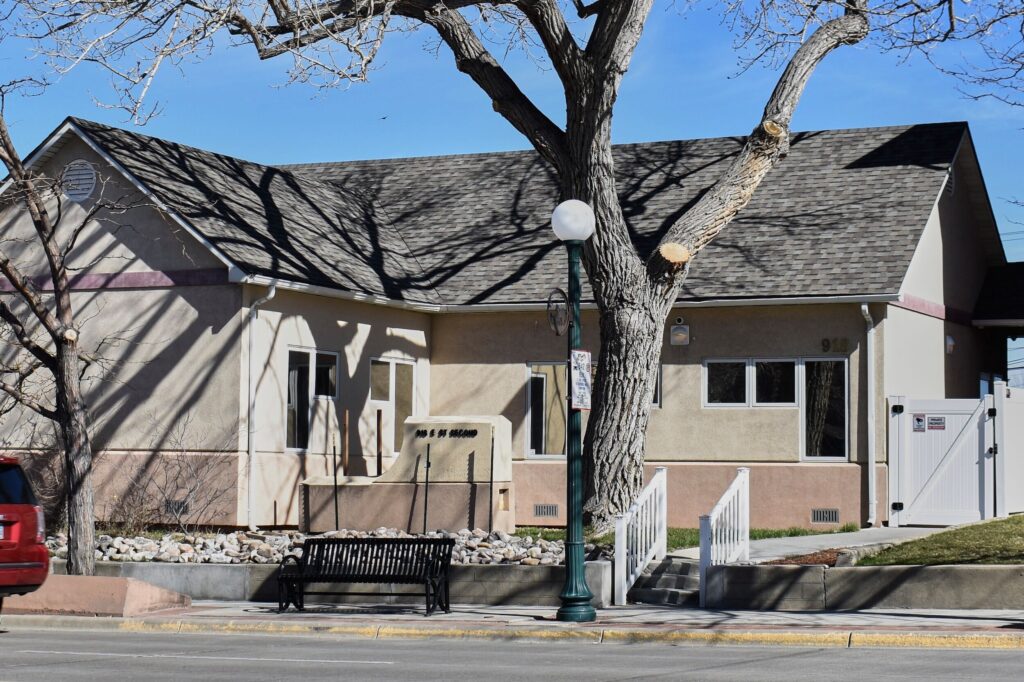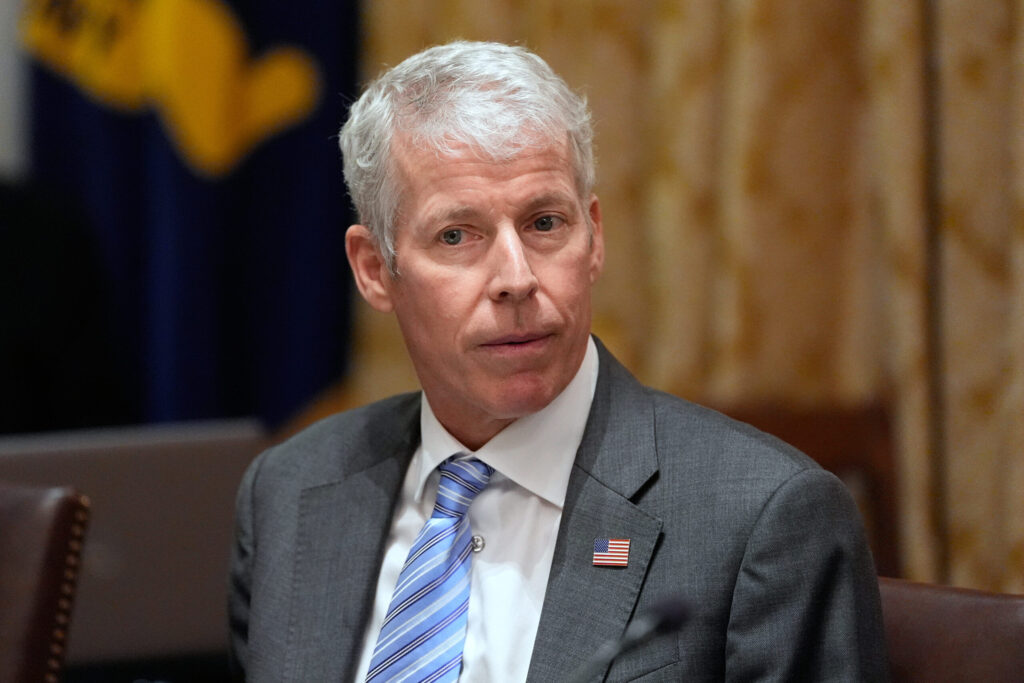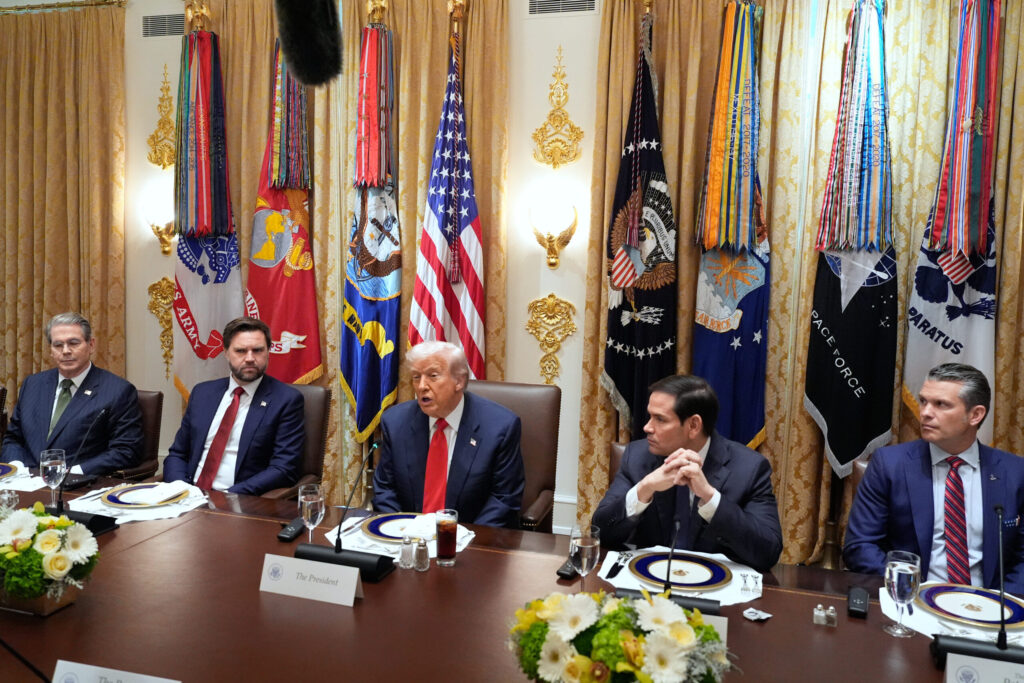Arapahoe County Democrats grapple with outrage over years-old ‘too many blacks’ remark
Arapahoe County Democrats say they’re working to resolve racial tensions within the party after a years-old remark about “too many blacks” running for office in the county resurfaced recently on social media and in a newspaper article, reigniting a long-simmering controversy.
The conflict stems from a candidate training session conducted by party officials in Aurora nearly three years ago when comments — there’s sharp disagreement whether the handful of words were overly blunt, too clumsy, poorly chosen, insensitive or downright racist — left some uncomfortable and others offended, while still others contend the words were misinterpreted beyond recognition. But it’s what happened next that stoked a rancor that persists years later, and that’s what party officials say they are determined to mend.
What everyone can agree on is that Democratic stalwart Carolyn Boller, who was then serving as state party secretary, uttered the phrase “too many blacks” during a meeting to discuss fundraising and other campaign fundamentals with some Arapahoe County candidates. Boller and her allies contend the words have been taken wildly out of context — she says she was passing on a perception she’d heard and advising the candidates to be prepared to address it if they encountered the sentiment — and repeated again and again until nobody even cares what she was really saying and can’t see past their outrage. But other Democrats say none of that matters and that party officials have been dismissing their concerns for years without grappling with their legitimate beefs.
“I think that everyone realizes that in order for us to be effective, we have to find a way to work together, that we have to find a way that everyone feels comfortable and included in the party and welcome,” Arapahoe County Democratic Party Chair Mary Ellen Wolf told The Colorado Statesman last week.
The party has established what it’s calling a diversity working group and is holding regular meetings in an attempt to overcome what many acknowledge has been a smoldering divide that seems to erupt every year or so.
“We have to acknowledge that there have been things that have caused pain in the past and we can’t ignore that,” Wolf said. “But there is a will now to make sure we move forward together.”
Facebook post reignites 3-year-old controversy
The controversy exploded last month after Arapahoe County Democrat Barbara Groves Jones, a former state party 2nd vice chair, recounted the 2014 incident — she wasn’t there when it happened but has heard versions from numerous people who were — in a Facebook post, provoking anger, disbelief and outrage. (Jones mounted a campaign for state party chair earlier this year but withdrew from the race a few days before Democrats met for their biennial reorganization March 11. She said an encounter at the state meeting dredged up the controversy and inspired her to spur the discussion on social media.)
Jones’s Facebook post motivated activist Jeff Fard — known as Brother Jeff, he runs a community center in Denver’s Five Points neighborhood — to show up at the county party’s March 14 executive committee meeting with a video camera to ask the newly elected officers about what he later termed “a racial remark that has dogged the Dems for years.” Wolf, who was chairing her first meeting, responded by saying she had “no personal knowledge of this” and moved on to agenda items.
Fard wrote an article about the controversy and a discussion that ensued at the meeting, which was published in several local newspapers, including the Denver Weekly News and The Body of Christ News, and shared widely online.
“Her dismissive response at the March 14 Arapahoe County Democrats executive session aggravates concerns held by many who wonder how inclusive the party is and whether blacks are welcome,” Fard wrote, and then recounted a series of events and complaints and reactions from Democratic officials he characterized as equally dismissive.
Party officials, lawmakers and community leaders convened at the monthly meeting of the Aurora branch of the NAACP on a recent Saturday morning to discuss the controversy and see if all sides could reach some accord. For an hour, they talked in a meeting room at the Rising Star Missionary Baptist Church, airing grievances, recounting different versions of events, offering apologies and, in the end, agreeing that there was a problem and that they wanted to work things out and move ahead.
Boller, who has been out of town for most of April, declined to be quoted for this article, instead speaking on background, lamenting that every time she’s tried to clarify what happened it’s only provoked more confusion and turmoil, although she maintained that the accounts of events have been garbled nearly beyond recognition. She did say she stood by the brief statement she sent to Fard, which he published at the end of his article: “In my 50 years in the party I have worked to support diversity and will continue to do so. I gave my apology and stand by it.”
Emphasizing that the NAACP is nonpartisan and that he isn’t involved with the Democratic Party, Omar Montgomery, president of the Aurora branch, welcomed the large crowd to the meeting and said he hoped to encourage an open conversation.
“We definitely like to provide a venue so we can have those discussions and not leave here saying, ‘I’m mad,’ ‘I’m upset,’ whatever, but what can we do to move forward,” he said. “What can we do to make this more of a learning opportunity and grow than to just have a bunch of allegations and stories?”
Wolf began the discussion by delivering an unequivocal apology.
“First, I would like to apologize to all of you,” she said, adding that she’d been caught off guard when Fard raised the topic at the meeting. “I am deeply sorry that my response felt dismissive. I take the issues of fairness and inclusiveness in our party seriously. The quote referenced was part of a training two and a half years ago. However, I recognize that it is still causing pain in our community. I cannot do anything to change what was said in the past, and I can’t change my reaction at the meeting, but I ask you for your forgiveness. So, I’m asking if we can move forward together and you can help me address these issues in our community and our party.”
Jones, vice president of the Aurora NAACP branch, spoke next, describing her attempts to make the Arapahoe County Democrats more racially inclusive despite what she suggested was resistance from some longstanding party operatives. “We are moving a little slowly, I would say,” she added.
Then, acknowledging that she hadn’t attended the 2014 candidate forum in question, Jones said, “I’m just paraphrasing, that there were too many black people running for office in Arapahoe County. For us, that was very offensive, for the African-Americans, and some of the non-African Americans in the meeting were offended as well. So the following week, I decided to address the issue with some of the people in the meeting.” But that didn’t resolve things, she said. “There was no admission that was inappropriate, no ‘I’m sorry.’ I had offered, ‘Maybe you didn’t mean it that way, but if you didn’t mean it that way, at the very least, these people were offended.’ There was no apology. They just doubled down on those statements.”
“It’s been festering,” she continued, contending that Boller made more comments about African-Americans the following year — Boller disputes this — and said that Democratic officials have either denied there’s a problem or simply hoped it would go away.
“We cannot fight Donald Trump and the Republican Party if we cannot address those kind of Donald Trump comments in the Democratic Party,” Jones said.
She argued that the party needed to confront the fact that what it’s done hasn’t adequately confronted the problem.
“The approach that we’ve made did not solve this issue,” Jones said. “We had diversity training. Diversity training says, ‘We are different.’ It does not solve the pain and the issues. It still went on year after year after year. Those were harsh words that offended many of the people in that first meeting. It’s been festering and festering and festering.”
A first-person recollection of the inflammatory remark
John Buckley, who chaired the county party in 2014 and was at the candidate training meeting, described what happened and how the fateful three words had been spoken.
“The comments were made in the context of this — that there are people not within the Democratic Party who believe there are too many African-American candidates running,” he said. “It was not a position held by the Democratic Party. And in the context of that, we were trying to assist candidates in trying to overcome that feeling, that if they needed to fundraise, they couldn’t count just on donations from the African-American community, they had to be able to have a broader appeal. In any district, you need to have a broad appeal. … It was meant to say, ‘Look, folks, this is a real problem that we need to stay on top of.’ It was not meant to discourage any candidate from running for office. We have supported every African-American candidate that has ever come down the pike, as evidenced by the fact that we have four black legislators right here.”
At that, the four African-American lawmakers from Aurora, all Democrats — state Sen. Rhonda Fields, House Majority Deputy Whip Jovan Melton and state Reps. Janet Buckner and Dominique Jackson — nodded to the room.
“I have supported them, the Democratic Party has supported them,” Buckley continued, sounding slightly exasperated. “The context of the comment was simply to say, ‘Look, this is a problem, you need to be aware of it, you need to be prepared to address it, let’s help you craft a campaign structure to address it.’ It is the same kind of thing we would say to any candidate. For instance, when Andrew Romanoff was running for Congress, he had an exceptionally white circle of people around him that were his campaign staff, and we said, ‘Look, that’s a problem in terms of perception with the public, you need to have a more diverse campaign staff.’”
Then he shook his head and looked around the room.
Sitting Black legislators address Arapahoe concerns
After that, the four legislators walked to the front of the room and took turns addressing the crowd. State Rep. Mike Weissman, another Aurora Democrat, also attended the meeting, and spoke briefly later from his seat, as did Arapahoe County Commissioners Nancy Jackson and Bill Holen.
Melton said he was made aware of the comments soon after they happened by House District 37 candidate Marlo Alston, who was a client of his at the time and had attended the meeting. (CU regent candidate Naquetta Ricks was the other African-American candidate at the training session.) Melton said he voiced concerns and the party responded with diversity and inclusion training sessions.
“In my opinion, I feel like the party has supported all the candidates who are standing up here,” Melton said. He allowed that the party might contain “some bad apples” but added that he didn’t think the party condones any of the behavior under discussion.
“If we’re going to be facing a Trump election and things that are coming in the administration, divisiveness is the last thing we need. So rehashing a story that happened years ago is not going to move us forward,” he said. “I do believe we are on the right path, and I would like to see this divisiveness end. This story is unnecessary to continue to talk about. Let’s talk about how we continue to move forward.”
Sweeping his arms to indicate his colleagues, Melton noted that Arapahoe County had elected four African-American state lawmakers in 2016, more than any other county — including Denver — amounting to fully half of the Black Democratic Legislative Caucus of Colorado.
“None of us come from a majority black district. None of us,” he said. “There are no majority black districts in Arapahoe County. It’s going to take all of us working together.”
“Collectively, we’re so much stronger,” Jackson said. “That’s my ask, that this ends — here, now, that we don’t keep moving forward with this, that we keep moving forward collectively. We are so much stronger than this divisiveness.”
Fields thanked Wolf and called her apology “a good first step,” adding, “But I think with any apology there has to be accountability. With that apology, there has to be some clear pathways and some steps in reference to addressing inclusion and diversity. I’m not talking about one black or two blacks or three blacks. Inclusion is making sure that all minds and thoughts are represented in a room. So it might mean that you have some Latinos, some gay folks, some Asian folks and some international folks, some refugee folks. I think our party needs to be reflective of the community that elected us.”
Fields has filed her own complaints against Boller in recent years charging inappropriate language and behavior, developments Boller said baffled her because she served for five years as treasurer for Fields’s House campaigns, only stepping back last year when Fields was in a Senate primary with former state Rep. Su Ryden, because party rules required it.
Addressing the NAACP meeting, Fields said she thought accountability has been missing from previous apologies rendered by the party and its officials.
“When you come to a meeting, and this has happened to me, yes, this happened to me, so I know all of this stuff — I want to let it go, too, but I want to be clear — when you hear this word ‘dismissive,’ that hurts, Fields said. “It’s like calling what I’m saying isn’t true, like it didn’t happen. It did happen. And when I have the leadership of the party act like it didn’t happen, that it’s hearsay,” she said, shaking her head. “I think it’s a time to listen and to reflect and demonstrate a different type of behavior to show that you do celebrate diversity, that you do celebrate inclusion.
“I’m ready to move on, but don’t dismiss that race doesn’t matter. Race does matter. And I can’t change the color of my skin, and I don’t want to change it, either. That’s who I am. I am black, and I am an Arapahoe County Dem. Racism did happen to me.”
Buckner, who spoke next, said she remembered that her husband, the late state Rep. John Buckner, had talked about the initial incident when it occurred, recalling that he’d said, “Things like that happen, and it does hurt.” But she said she’d been stunned to see her picture on the front page of the Denver Weekly News illustrating Fard’s article, since she hadn’t even been in the Legislature when the events happened.
Melton made a similar point. “This is not the way to handle it,” he said. “If we’re going to move forward, we have to move forward in positive ways, not rehashing things that happened three years ago, and putting our pictures on the front of an article about something that happened three years ago — that’s not progress.”
Jones responded that she wasn’t rehashing things that happened years ago but was concerned about how the party continued to handle — or avoid — the issue.
“I’m talking about a process. If something happens every year by this same person that is allowed to go on in our meetings,” she said, not mentioning Boller by name. “That’s what this is about, it’s not about you four and your picture on there,” she said, waving the front page of the Denver newspaper. “It’s about changing our process, how we do things in Arapahoe County.”
“There was one person who said some things that were inappropriate, some things that shouldn’t have been said. Has she been effective in any way?” Melton asked.
Airing out the dirty laundry
Former Arapahoe County Democratic Party Chair Pat Shaver — she served a two-year term between Buckley and Wolf — rose to admonish the party officials and lawmakers for “air[ing] our dirty laundry out here.” She added, “And we need to be out of the papers, out of the TV stations and out of anywhere else. We cannot keep sweeping this under the rug, we cannot have people keep trying to spin it, which we’ve had, and that’s what pisses people off. We need to keep telling our story, but we need to tell our story in-house. We need to quit having this bickering we’re having out in public, and we need to do this behind closed doors so we can really talk about what’s really going on.”
Buckner recalled times she’s encountered naked racism while campaigning and serving in office — the other legislators nodded, and a couple shared their own accounts — but then spoke again about her late husband, John Buckner, who was principal at Aurora’s Overland High School for years before being elected to the General Assembly.
“He was respected because, as he would say, when something happens, call it what it is,” she said. “Call it what it is. And that’s what we’re trying to do today. He would also say, if it’s racist, call it racist. But he would also say, we have to move forward. We have to move forward.”
Calling what had just taken place “a rich discussion,” Fields had the final word. Quoting Dr. Martin Luther King Jr. — with easily half the room speaking the words along with her — she said, “ ‘Injustice anywhere is injustice everywhere.’ This is not about one person. This is about an injustice, and when you hurt, or I hurt, and there’s something wrong in our society, we need to do something to try to correct inequities. It’s not anything you can fast forward, it happens right like this.”
She looked around the room and gave an affirmative smile. “In every interaction we have with anybody, we can either lift them up or tear them down.”











